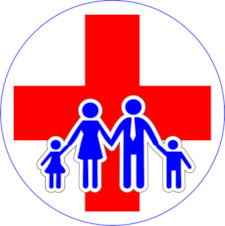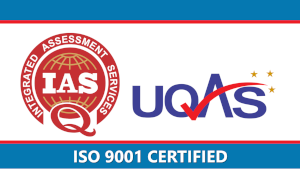Nephrology
Nephrology
Nephrology is a speciality which deals with medical conditions related to Kidneys. Nephrologists are specialized doctors who treat diseases related to kidneys. Kidneys perform an important function and they filter the blood and remove waste, remove toxins, monitor and balance the water in the body, and maintain the mineral ratios in the body. Nephrology department in KVT speciality offers round the clock services. Quality hemodialysis services are available 24/7. We do emergency hemodiaysis for acute kidney injury and chronic kidney disease. We have good critical care set-up in dealing with nephrology emergencies. We diagnose and treat glomerular diseases, rapidly progressive renal failure and auto-immune diseases.
All the laboratory investigations and radiology imaging like ultrasound and CT scans necessary for diagnosing kidney disease are available here. Procedures like renal biopsy, insertion of non-tunnelled and tunnelled catheter are done here.
Nephrology Conditions
Common Nephrology Conditions that are treated by Nephrologists are,
- Blood in Urine
- Protein in Urine
- Kidney Stones
- Kidney Infections
- Kidney Swelling
- Polycystic Kidney Disease
- Electrolyte Disorder
- Hemolytic Uremic Syndrome
- Renal Artery Stenosis
- Nephrotic Syndrome
- End-Stage Kidney Disease
- Acute Kidney Injury
- Chronic Kidney Disease
Common Nephrology Procedures
Common Nephrology Procedures that are performed by Nephrologists are,
- Hemodialysis
- Peritoneal Dialysis
- Chronic Ambulatory Peritoneal Dialysis
- Acute Dialysis Catheters
- Plasmapheresis
- Permacath Insertions
- Kidney Biopsy
- Avgraft Creation
- Avfistula Creation
- Kidney Transplantation
- Thrombolysis
Nephrology Consultants
Dr. S.Thirumavalavan MBBS., MD., DM.
Nephrologist
Tuesday & Friday 7:30 pm to 9:00 pm
Dr. J. Dhanapriya MD. (Internal Medicine), DM. (Nephrology)
Nephrologist
Saturday 1:00 pm to 3:00 pm
Nephrology Frequently Asked Questions - FAQ
The Nephron is a minute microscopic structure and functional unit of the kidney. There are around million Nephrons in each human Kidney. Nephrons take in blood, metabolize nutrients, filter waste and excess substances from the blood.
Nephrons has two major elements; Glomerulus and Tubule. Glomerulus allow smaller molecules, wastes, fluids and water to pass into the tubule. In tubule, blood vessel reabsorbs all the water, minerals and nutrients that the body requires and remaining fluid become urine to be removed from the body.
A Nephrologist is responsible for the diagnosis and treatment of kidney disorders like acute kidney injury, kidney stones, chronic kidney disease, dialysis (hemodialysis and peritoneal dialysis, electrolyte imbalance, etc. Nephrologists also treat uncontrolled hypertension, renal function abnormalities due to auto immune diseases. Nephrologists also are part of the kidney transplant team though they don’t operate. Nephrologists treat all post-renal transplant recipients.
The kidneys are organs that filter the blood in order to remove waste and regulate the various chemicals in the blood. In addition, the kidneys secrete hormones that regulate blood pressure, prevent anemia, and promote bone strength.
The most common causes of kidney disease are hypertension and diabetes. Others disease like autoimmune, genetic and infections affects kidney. Usage of pain killers for long time and inadvertent use of native medicines affect kidneys.
Changes in urination-more or less urine than usual, feeling pressure when urinating, changes in the color of urine, foamy or bubbly urine
Swelling of the feet, ankles, hands or face
Fatigue or weakness
Shortness of breath
Ammonia breath or an ammonia or metal taste
Itching—may be severe, especially in the legs. Loss of appetite
Nausea and vomiting and hiccups
CKD (Chronic Kidney Disease) is a condition in which kidney damage is above a certain threshold within a 3 month period or kidney function is below a certain threshold within a 3 month period. Unfortunately there is no cure for kidney disease. There is only stopping or slowing down the speed of damage.
Depending on your physical examination, history of illness & symptoms, your nephrologist will ask for the following tests:
Complete blood test
Urine routine/Microscopy and Culture Test
Kidney function tests that include potassium, calcium, creatinine, BUN (blood urea nitrogen)
Ultrasound Imaging of Kidneys
In addition to out patient and in-patient consultations, they perform Ultrasound Guided Biopsies / aspirations, use Hemodialysis / Plasmapheresis / CRRT / Peritoneal Dialysis to manage ESKD / AKI patients.
Avoid Smoking and addictions. People with high cholesterol need to make changes in the food they eat and the amount of exercise they get in order to lower their cholesterol. Over the counter and prescription pain medications which damagethe kidney should be avoided. A kidney diet is Low in sodium, Low in protein, Low in phosphorus and potassium.
Dialysis is a process through which a person’s blood is cleansed of the toxins or wastes that kidneys normally remove. It is used when a person’s kidneys no longer function optimally.
Haemodialysis and Peritoneal dialysis.
Hemodialysis cleans and filters your blood using a machine to temporarily remove harmful wastes, extra salt, and extra water from your body. Hemodialysis is most often performed in a dialysis centre but home treatment options are also available.
Peritoneal dialysis uses the lining of your abdomen and dialysis solution (a mixture of minerals and sugar dissolved in water) to filter your blood removing wastes, chemicals and extra water from your body. After several hours, the used solution is drained from your abdomen through a tube and the cycle is repeated with fresh solution.
Both are good, choice usually depends on personal lifestyle of the patient and certain medical conditions like congestive heart failure, vascular access complications, diabetes etc. Hemodialysis is usually performed at a dialysis centre as compared to peritoneal dialysis which can be safely done at home. CAPD is usually preferred in children as they have small vessels which are difficult to cannulate and repeated needling is painful and difficult in them. Fluid intake can be more liberal in CAPD.
Yes, this can lead to fluid overload and breathing problem. It can also increase your serum potassium level which can lead to serious cardiac complications.
No, dialysis does not cure kidney disease. It does the work which the kidneys should be doing.
Patients on adequate dialysis can lead a close to normal life.
A kidney biopsy is done by nephrologists to determine what is damaging your kidneys. 95% of kidney biopsies reveal the cause of the kidney disorder.
A biopsy is a diagnostic test that involves collecting small pieces of tissue, usually through a needle, for examination under a microscope. The patient lies on her belly for the entire procedure, sometimes a pillow is placed under the belly to arch the back and put the kidneys in a more accessible position. An ultrasound machine is then used to locate the kidneys. Local anesthetic is used to numb the skin and the surface of the kidneys. Then a needle is inserted into the kidneys and removes a tiny sample, called a core.
Following the procedure patients are monitored either for a number of hours or overnight. During that time the nephrology team looks for signs of bleeding or other complications.





